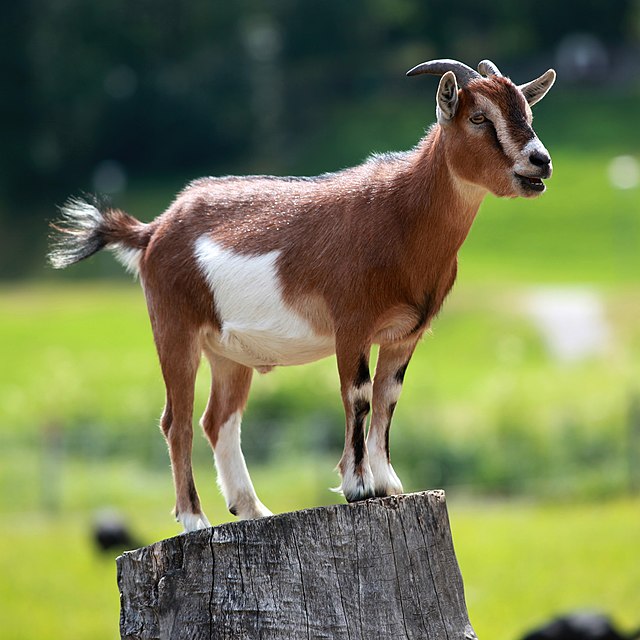やぎ
From Wiktionary, the free dictionary
From Wiktionary, the free dictionary
| Alternative spelling |
|---|
| 柳 |
From Old Japanese. First attested in the Man'yōshū of 759.[1]
Ultimate derivation unclear. Theories include:
Generally only found in compounds.

Ultimate derivation unclear. Theories include:
Might only be attested in Japanese since 1523.[3]
The kanji spellings, either 山 (“mountain”) + 羊 (“sheep”) or 野 (“field; wild”) + 羊 (“sheep”), are examples of jukujikun (熟字訓).
As with many terms that name organisms, this term is often spelled in katakana, especially in biological contexts (where katakana is customary), as ヤギ.
The reading of various names.
| For pronunciation and definitions of やぎ – see the following entries. | ||
| ||
| ||
| (This term, やぎ (yagi), is the hiragana spelling of the above terms.) For a list of all kanji read as やぎ, see Category:Japanese kanji read as やぎ.) |
(The following entries are uncreated: 矢木, 八記, 八樹, 矢儀, 八代, 野寄, 矢樹, 屋木, 柳吉, 矢城, 八鬼, 谷木, 八城, 矢来, 箭木.)
Seamless Wikipedia browsing. On steroids.
Every time you click a link to Wikipedia, Wiktionary or Wikiquote in your browser's search results, it will show the modern Wikiwand interface.
Wikiwand extension is a five stars, simple, with minimum permission required to keep your browsing private, safe and transparent.